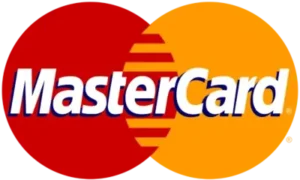
With the evolution of blockchain technology, it is revolutionizing more industries than just creating and powering cryptocurrencies like Bitcoin and Ethereum. As this technology advances, the very core of digital marketing accuracy, trust, and transparency are its prime fundamentals-begins to reap its power in helping many digital marketing challenges. Whether building customer data trust or simply cutting out ad fraud and further supply chain transparency, the power of blockchain in digital marketing opens new dimensions.
Here, we discuss how blockchain is changing the face of digital marketing, the benefits it offers, and how businesses can prepare for a blockchain-enhanced future.
1. Understanding Blockchain Basics and Its Marketing Potential
Blockchain is basically a distributed ledger that can securely record transactions over a decentralized network. In contrast to traditional databases, which are centralized with only one central authority managing them, a blockchain system has more than just one participant, or nodes, that keep it. This type of decentralized model then improves transparency, security, and trust because the verification of every transaction is secured by a consensus mechanism and cannot be altered retroactively without the consensus of the entire network.
Blockchain technology would allegedly provide transparency, security, and immutability to several critical applications to be used within digital marketing.
Data Accuracy:
Marketers validate original data as held on the blockchain; this would have minimal chances of false information and misleading facts.
Transparency in advertisements:
Here, again using the blockchain system marketers are able to trace their advertisement impression that the people displayed were certainly truthful and with high visibility.
Increased User Privacy:
Blockchain, hereby, grants the power of control to the users over their data, thus increasing trust in customers for brands who value privacy.
2. Building Trust and Transparency in Digital Advertising
There exists a lack of trust and transparency in digital advertising due to data accuracy and ad fraud. Some of these are being directly countered by blockchain with its ledger system wherein all data is timestamped and put in public view.
Elimination of Ad Fraud:
The use of blockchain allows tracking and validation of all clicks and impressions from an auditable ledger for advertisers. Bots and fraudulent users, through the creation of fake clicks, create ad fraud to change some of the ad metrics for advertisers costing billions of dollars annually. With blockchain, it has become easier to mark immutably all clicks and impressions while allowing marketers to trace their fraudulent actions easily.
Increased Transparency in Ad Spending:
Using smart contracts, digital marketing campaigns can secure and automate payments that are dependent on conditions such that ad spending cannot be utilized for illegitimate contact. Blockchain-based smart contracts ensure that the system can automatically execute action when certain campaign metrics have been met; hence the system becomes accountable and the advertisers can trace how effective their spend has been.
3. Revolutionizing Data Privacy and Ownership
Data privacy is one of the major concerns these days, and this can be associated with the recent enactments of regulations like GDPR and CCPA. Consumers have a concern about the usage and sharing of their data by brands. Blockchain can act as an important source that provides more control over personal data to consumers, enabling brands to build trust with consumers.
Consumer Data Ownership
This allows the customers to exercise ownership over their personal data so that they can selectively share their data with the companies they trust in this blockchain model. The self-sovereign identity method puts users in charge of controlling who accesses their information, a move that may enhance branding perception and loyalty. Here, one can imagine customers willingly offering data to companies in exchange for rewards as that develops a more transparent partnership between brands and consumers.
Improved Compliance
The immutable ledger for blockchain has assisted organizations in building up a permanent record of user consent in managing their private records while strictly adhering to privacy laws. The ledger on blockchain for consent is auditable in nature as it cannot be manipulated which assists companies in implementing regulation on data handling with much ease and makes it transparent for all the means related to data handling.
4. Engagement of Customer Through Tokenization
Another revolutionary way in which blockchain transforms digital marketing is by assigning tokens that will give the customers some form of digital assets or rewards and thus enhance the level of engagement. Tokens can be customized for every possible marketing strategy-from loyalty programs to exclusive rewards.
Rewarding User Behavior:
A blockchain-based loyalty program, for instance, enables the reward of users with tokens, such as signing up, sharing content, or making a purchase. These rewards may then be redeemed in the form of discounts, products, or even monetary value on exchanges. What differentiates blockchain tokens from traditional rewards points is that they are safer, more verifiable, and portable, which, therefore, provides customers with additional value.
By tokenization, brands create a community for their customers. For example, tokens provide access to exclusive content events or communities and enhance the loyalty of customers to a brand, while the interaction of customers with the brand is increased. Tokenized incentives align the interests both of brands and customers through engagement to provide rewards.
5. Blockchain Application on Supply Chain Transparency
As the demand for digital marketing grows, especially with regard to sustainability, ethical sourcing, and authenticity of products, supply chain transparency becomes highly relevant. Blockchain can empower marketers to create supply chain transparency by recording every step of a product’s journey on an immutable ledger.
Product Authenticity Verification:
It assures the consumer that a product is original and traced through the entire production process, which includes raw material sourcing and shipping, using blockchain. Building such a brand story inspires trust in the consumer tracing the origin and journey of a premium or sustainable good.
Developing a Transparent Brand Story:
Today’s consumers are much more concerned with transparent and ethics-oriented sourcing and manufacturing from their brands. With blockchain, brands can clarify their commitment to these values by putting supply chain information out in public space for all to see. This builds brand reputation and trust with socially conscious consumers.
6. Influencer Marketing through Decentralization End
It has now turned into a powerful marketing tool but with a lack of transparency, fraudulent metrics, and inflated follower counts. Blockchain technology may solve this by making the whole influencer marketing process more transparent and accountable.
Process tracking:
Because all interactions are recorded on the blockchain, brands can verify the engagement metrics of an influencer, such as views, likes, and comments, making sure that the metrics are authentic. This will result in a system where metrics cannot be manipulated, which makes data more reliable for brands.
Clear Contracts:
Smart contracts will automatically execute agreements between brands and influencers, disbursing payment only after certain conditions are met-for example when engagement targets are reached. This way, the obligation of both parties will be met, and the collaboration of influencers will become less complicated and more effective.
7. How to Use Blockchain in Digital Marketing
To those companies who wish to use blockchain, here’s a step-by-step approach: Assess your marketing needs: Identify areas where blockchain can help in pain points such as data transparency, ad spending, or customer engagement.
Choose blockchain platforms:
Select which platforms fit best with the needs of your marketing, for example, smart contracts on Ethereum, a platform for supply chain transparency on VeChain.
Consider regulatory compliance:
Make sure any blockchain efforts you make comply with data protection regulations so you don’t have problems in compliance.
Train your Staff:
Educate your marketing and tech teams so they grasp blockchain’s ability in terms of applying it fully in proper action.
Prototype to the Max:
Set small programs and test for blockchain impact on the digital campaign. Learn through findings, then adjust further from this learning.
8. Hurdles in Applying Blockchain to Digital Marketing
Despite its potential, the technology still poses challenges with respect to implementation in digital marketing. These include the technical complexity of the blockchain, its integration with extant systems, regulatory uncertainties, and customers being educated on use. Nonetheless, as more firms and platforms adopt blockchain, clear the hurdles associated with adoption, and popularize this new technology, it likely becomes an integral part of digital marketing.
As things are going forward, blockchain will be able to advance marketing even more. From being able to confirm the data, developing the confidence of the customer, and giving safe and transparent transactions, this may bring new levels to customer relations that might differentiate brands from competitors in the digital environment. As a result, businesses interested in these innovations shall embark on the blockchain journey as an exciting way toward a trust-oriented, transparent, and engagement-rich future.
Blockchain technology offers a powerful solution to several challenges that digital marketing is currently facing. At its core, blockchain allows for more transparency, creating more trust and data privacies while building value through tokenization. It is, therefore, an exciting avenue for marketers to penetrate or reach modern consumers. As digital marketing continues to evolve, this is a great time for those brands embracing blockchain, which will position them to gain competitive advantage as well as establish credibility and loyalty in a world where trust is the paramount currency. Adapting to blockchain would prepare brands for the future of increased transparency and empowered customers and set the course for more relevant and effective marketing.
FAQs
1. How does blockchain technology enhance transparency in digital marketing?
Blockchain provides a secure and immutable ledger of transactions, allowing brands and consumers to verify the authenticity of data. This transparency reduces the chances of fraud and builds trust between advertisers and their audiences.
2. Can blockchain help reduce ad fraud?
Yes, blockchain can significantly reduce ad fraud by enabling real-time tracking of ad impressions and clicks. This transparency allows advertisers to verify that their ads are seen by actual users, not bots, ensuring that their ad spend is more effective.
3. What role does tokenization play in digital marketing?
Tokenization allows brands to create unique digital tokens that can be used for loyalty programs, discounts, or rewards. This incentivizes customer engagement and helps brands collect valuable data on consumer preferences.
4. How does blockchain empower consumers in the digital marketing space?
Blockchain enables consumers to have greater control over their data. With decentralized identity solutions, individuals can choose what information to share with brands, enhancing privacy and fostering a more personalized marketing experience.
5. Are there any challenges to implementing blockchain in digital marketing?
Yes, challenges include the complexity of integrating blockchain technology into existing systems, the need for industry-wide standards, and the necessity for consumer education about the benefits of blockchain to gain widespread acceptance.













